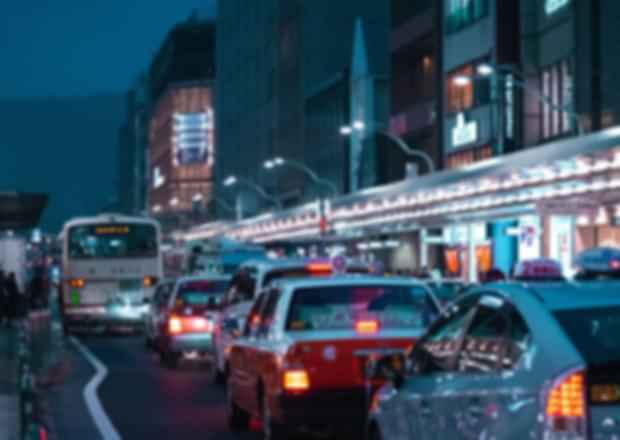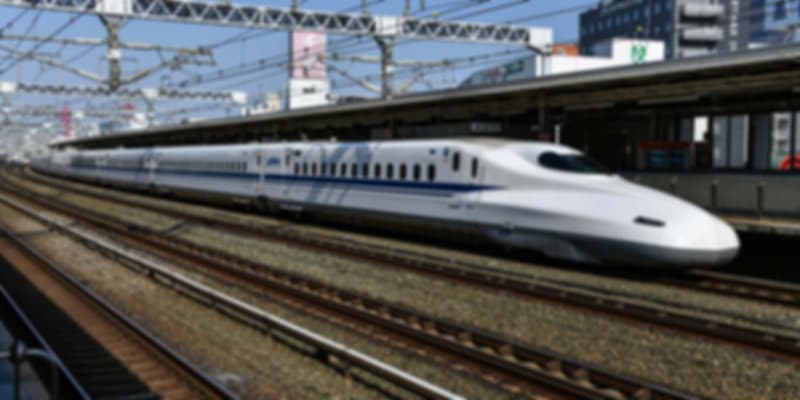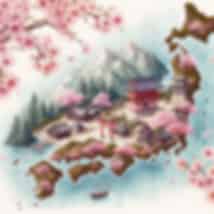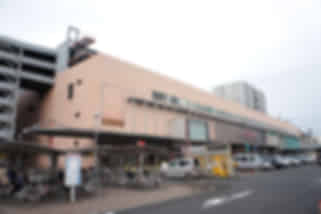Japan Transportation Guide: Trains, Buses, Subways, and IC Cards

Navigating Japan local transport has never been easier or more exciting. Renowned for its precision, punctuality, and advanced technology, Japan’s transportation network connects every corner of the country with seamless efficiency. Whether you’re boarding the iconic Shinkansen bullet train, hopping on a Tokyo subway, or tapping your IC card for a quick bus ride, the system is designed to make travel smooth for both locals and tourists. Japan continues to enhance its cashless systems, multilingual ticketing machines, and mobile-friendly options, allowing visitors to move effortlessly between cities and regions. This guide breaks down everything you need to know, from train types and subway etiquette to IC cards, passes, and smart travel hacks, so you can explore Japan like a pro without confusion or costly mistakes.
Choosing the Right Transport in Japan
| Mode | Typical Use-Cases | Coverage | Cost Range | IC Card Acceptance | Speed vs Cost Tradeoff |
| Shinkansen (Bullet Train) | Intercity, long-haul, fastest option | Nationwide backbone (Tokyo-Osaka, Tohoku, beyond) | Premium fares | Limited IC, reservations required | Tokyo-Osaka in 2.5 hrs vs 8-10 hrs by bus |
| JR Limited/Rapid/Local Trains | Mid-distance travel, daily commutes | Widespread across Japan | Distance-based fares | Widely IC compatible | Balanced speed and price |
| Private Railways | Suburban and regional coverage | Dense in Kansai, Tokyo | Moderate, varies by line | IC cards accepted | Essential for city outskirts |
| Metro/Subway | Short urban trips, sightseeing | Major cities (Tokyo, Osaka, Kyoto, Nagoya) | Low, zone-based | Full IC coverage | Fast, frequent, affordable |
| City Buses | Local routes, last-mile travel | Nationwide | Low fares | Mostly IC, carry coins | Slower but essential locally |
| Highway Buses | Budget intercity, overnight trips | Nationwide | Half Shinkansen price | Growing IC use | Cheap but long |
| Taxis | Convenience, luggage, late-night | Nationwide | High per km | IC accepted | Comfort over cost |
| Passes (JR Pass, Regional Passes, Metro Day Passes) | Multi-city trips, sightseeing | Nationwide or regional | Upfront cost, value depends on itinerary | Often not IC | Great for frequent long-distance travel |
Note: Information based on updates from Japan National Tourism Organisation (JNTO) and official transport operators.
Practical Use Cases for Japan Transport
- Day Trips: Regional JR trains or metro for simple and flexible travel.
- Major City Hops: Shinkansen for speed, highway buses for budget.
- Rural Journeys: Local trains and buses-always check schedules.
- Airports: Named express trains for speed, highway buses for cheaper alternatives.
Tip: Book Shinkansen and Limited Express tickets up to 30 days in advance, especially during Golden Week, Obon, and New Year.
Japan Trains: JR, Shinkansen, and Private Lines

Train Types and Timetables
- Local, Rapid, Limited Express, and Shinkansen each have different stop patterns.
- Train codes and destinations must be checked carefully; express services skip stations.
Ticketing and Seat Reservations
- Buy at stations (Midori no Madoguchi) or multilingual vending machines.
- Online booking platforms allow advance reservations, useful for tourists.
- Reserved seats: Peace of mind in peak times.
- Unreserved cars: Cheaper but often crowded.
- Green Car (First Class): Spacious but more expensive.
Private Railways
Private operators fill gaps in the JR network, especially around Tokyo and Kansai. Most accept Suica, PASMO, ICOCA, and other IC cards.
Subways and City Rail Systems in Japan

- Subways are dense in Tokyo, Osaka, Kyoto, and Nagoya.
- Stations can be complex, with multiple exits-always check exit numbers.
- Long underground walks (5-10 minutes) are common in major hubs like Shinjuku.
- IC cards allow seamless transfers across operators.
Etiquette and Accessibility
- Priority seating, women-only cars, and elevators are common.
- At rush hour: remove backpacks, avoid calls, and always let passengers exit first.
Japan Buses and Highway Coaches
- City Buses: Essential for neighbourhoods without train access.
- Highway Buses: Budget-friendly intercity option, with luggage storage and reserved seating.
- Tourist Loop Buses: Convenient for sightseeing clusters (Kyoto, Hiroshima).
Practical Tips:
- Some buses require exact change; others take IC cards.
- In rural Japan, buses may be infrequent-always check schedules.
- Overnight coaches are cheap alternatives to hotels.
Japan IC Cards: Suica, PASMO, ICOCA, and More
| Card | Main Area | Where to Buy | Interoperability | Digital Options |
| Suica | Greater Tokyo (JR East) | Stations, airports | Works nationwide | Mobile Suica available |
| PASMO | Tokyo private rail/metro | Kiosks, airports | Fully integrated | PASMO digital available |
| ICOCA | Kansai (JR West) | JR stations | Broad coverage | Mobile version available |
| Other ICs | Regional cities (TOICA, Kitaca, SUGOCA) | Local JR stations | Mostly compatible | Some digital options |
Everyday Use of IC Cards
- Tap in/out on trains, subways, and buses.
- Usable at vending machines, shops, and convenience stores.
- Top up at stations or convenience stores.
- Refunds vary by card and location; airports sometimes allow cash-outs.
Apps, Resources, and Planning Tools for Japan Transport
- Google Maps– Simple and tourist-friendly.
- NAVITIME – Best for detailed multi-operator routing.
- Jorudan – Focused on fare comparisons.
- Operator Apps – Use for ticket reservations and real-time updates.
Common Transport Problems in Japan
- Lost IC card -Report to issuer; registered cards can recover balance.
- Wrong fare -Use fare adjustment machines at stations.
- Missed seat reservation -Use non-reserved cars or rebook.
- Seasonal delays -Typhoons and holidays affect schedules.
Final Thought: Explore the Japan Local Transport
Navigating Japan’s local transport is easier than ever thanks to IC cards, multilingual ticket machines, reliable apps, and world-class punctuality. From Shinkansen speed to metro convenience and highway bus savings, Japan’s network offers every traveller an option to fit their budget and itinerary. Whether you’re exploring on your own or through a Japan tour package, a little preparation—booking seats early, picking up an IC card on arrival, and checking schedules will make your journeys across Japan seamless and efficient.
FAQ: Japan Local Transport
1. In Japan, do I really require an IC card?
Yes. IC cards such as Suica, PASMO, and ICOC are nearly a necessity among Japanese tourists. They operate in trains, subways, buses, convenience hotels, vending machines, and so on, and they make the transfer of the goods easy without any concern about vouchers every time.
2. Is the Japan Rail Pass a good investment for tourists?
JR Pass is not very economical unless you are making more than one or two trips on Shinkansen or long-distance trains in a week or two. In the case of single city travel, the local IC cards and regional passes are lower priced.
3. When is it advisable to book Shinkansen tickets?
When reservations are open, such as in the peak seasons, such as Golden Week, Obon, or New Year, book Shinkansen tickets 30 days ahead. During off-peak periods, several days in advance is normally sufficient.
4. Will I be able to use the same IC card in other cities in Japan?
The majority of large IC cards (Suica, PASMO, ICOCA, TOICA, etc.) are compatible with each other on a national scale, so that a single card typically is accepted throughout Tokyo, Osaka, Kyoto, Sapporo, or Fukuoka, and other major cities.
5. Do subways in Japan run 24 hours?
No. The subways in Tokyo, Osaka, and Kyoto operate between approximately 5:00 AM and midnight. Make arrangements in case you are late at night, you might need a taxi.
6. Will I be able to use mobile applications in place of paper tickets?
Yes. Such apps as Google Maps, NAVITIM, and Jorudan are integrated with transit schedules and IC cards. Mobile bookings and QR tickets can now be made on many train operators covering Shinkansen services and limited express services.
Recommended articles for you
Discover Packages


Need help in planning?
Talk to our Travel Experts






























